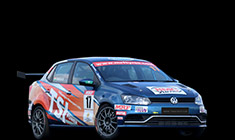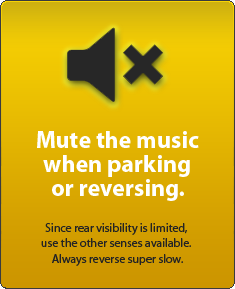News
Pros and Cons of Tuning: 10k kms with my remapped Skoda Rapid 1.5 TDI
Hope this review would be helpful for people who want diesel tunes. Would like to know if the points made are right and how to correct the issues which are associated with them.
BHPian Bsilver recently shared this with other enthusiasts.
Hello folks, this is my second post on team bhp!
I own a Skoda Rapid 1.5TDI Manual, and it is tuned to around 145 BHP and 310 Nm.
I have been using the tune for around 10,000kms which was done when the car had run around 72,000kms. Now currently at 83,000kms. Would not like to mention the tuners name. The time duration taken to cover this distance was around 11months odd.
I will be dividing this post into Pros first, then cons, and suggestions according to my personal experience. Will be discussing the cons first as I feel they are more important to address than just going on the bhp/nm figures.
Cons:
1. Black Smoke Levels: Since you are remapping a diesel which essentially means that most of the tuners will be controlling the values of fuel delivery. The problem only exists if it is not done properly. I personally feel that if there is smoke coming due to the tune, then the tune is not efficient enough, I might be wrong, so expert suggestions are highly welcomed! This thing in slang is known as a "rolling coal", but this does not occur during sedate driving. The only thing you can do to check to rule out any other possibility that this is caused elsewise is comparing your experience to your stock car. If it was smoking before the tune, then the tune has nothing to do with it. If not, then there is a propensity that the tune has something to do with it.
The smoke for me used to occur only when I am greater than 50% throttle, and just few RPMs before the boost would kick in.
2. Fuel Timing Issue: If you are getting black smoke its known to everyone that it has a fuel delivery issue. But this issue persists only in certain range of the RPMs. Usually the boost for TDI is at 1750 rpm, so once at this the boost gradually increases and reaches peak. Just before hitting 2000 RPM if you are greater than 50 percent throttle, there is smoke seen, and a lot of it.
Once boost levels are attained since there is air to burn the fuel the smoke gradually decreases as noticed. So the delta between when a tuner introduces the fuel into the system and when the boost kicks in is what produces the black smoke. I have seen stage 3 diesels which are producing more than 500 hp not smoking at all.
If anyone is looking for a tune for a diesel car, do notice this smoke as this is an indicator that the tune is not proper, and the fueling might be off. Experts please correct of I am wrong in anyway.
3. Support after Tune: A lot of people just upgrade the engine and not invest in good braking. Post tune I drove 2000kms on stock brakes and it never gave me confidence to push hard, later changed to ATE brakes and will be doing a 5000kms update for the same. Brakes is a must upgrade and preferably along with tune. Suspension of the Rapid has a bouncy character when on undulated surfaces, or on expansions, bypass areas. If you go more than triple-digit speeds, with stock suspension on the Rapid, there are high chances of loss of control as I have experienced this N times as I drive mostly on highways. If your budget allows do upgrade the suspension.
4. Maintenance: You will be needing to double your maintenance for any tuned car for it to support. I have changed maintenance to 7000kms for the Engine. The filter you put in requires maintenance every 4000-5000kms depending on your location. I use BMC from a long time and will update about the wear/tear as time passes/This could be done at home or FNG. You will be finding yourself (if you are not a sedate driver) pushing the car, and most of the times due to sudden torque curves in some tunes you will be having a problem with the drive shafts. Sudden acceleration/deceleration on a repeated basis will only prematurely wear them out.
Pros:
1. The stock motor from the factory (on paper) claims to be 105hp and 250Nm, post tuning the engine was able to achieve 142-145hp and 300-310Nm gains, which is really impressive for a small displacement engine like the 1.5, without any changes at all. The claims made are not dyno verified, but are made by cross matching the same engine, tuned by the same tuner which was dynoed. The only thing to add as an upgrade is an aftermarket air filter.
2. Drivability increases both on highways and in city, and FE numbers would have a noticeable jump. More than the FE, the overall engine feel at idle is really smooth. Prior to tune I was able to extract 14-15kmpl in the city and post tune around 17-18kmpl. Highway pre tune was 20kmpl and post tune was 24-25kmpl. These numbers are on a tank to tank basis and not the MID. A recent trip to the beautiful state of Kerala returned a impressive 1100+ range with speeds varying between 90-110kmph. Prior to the tune I would only be able to extract 900 odd kms on the highway. This could be an answer to the questions whether tuned diesels return efficiency or not.
The picture of the range reading 1210 even with driving 150 from the full tank onwards is attached.

3. Highspeed Drives: Overtaking becomes relatively easy as you need less planning.
Hope this review would be helpful for people who want diesel tunes. Would like to know if the points made are right and how to correct the issues which are associated with them.
Thanks all!
Check out BHPian comments for more insights and information.



















